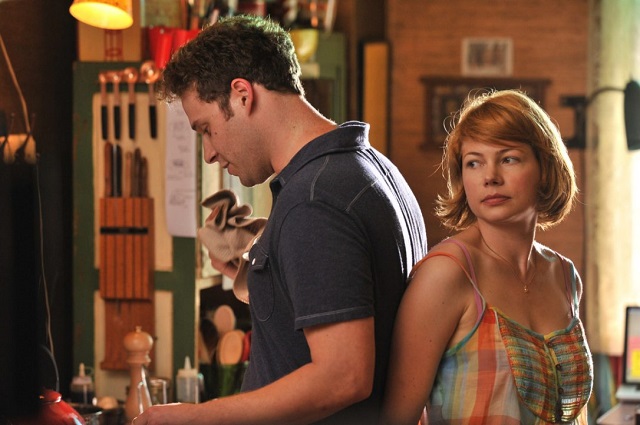
We all know that creating and maintaining a happy, consistently fulfilling marriage is hard and rare. I’m not just referring to the 50 percent of marriages that end in divorce—that’s an easy indicator that something isn’t quite right in how modern culture supports intimacy—but also to couples who stay together unhappy, frustrated, or even emotionally or physically abused or abusive.
I’ve been a therapist since 1973, and conducted my first couples session in 1974. I remember how distressed I was that this couple was hurting each other so much and loving each other so little. What was happening here? How could I help? My supervisor at the time, Dr. Herb Gravitz, told me, “Just love them Keith.” I followed his advice and it seemed to help, but I passionately wanted to know more and do more. This passion launched me into a lifetime of exploring intimacy in all its forms.
I’ve also been happily partnered with my wife Becky for 43 years. We have two grown children who are both doing well (thank God!), and I’m happy with the family the four of us have created and sustained. That being said, my wife Becky and I (as well as my son Ethan and daughter Zoe) have had to do a staggering amount of personal and relational work. Becky and I have worked constantly to have a sense of being fulfilled as life partners, lovers and parents.
Why has it been so hard? Are we just messed up people who needed extraordinary support to be normal?
The answer is that such effort is normally required to have a fulfilling long-term relationship. In sexual relationships we are genetically programmed to habituate to a partner as our initial romantic infatuation fades over the first one to three years. We tend to take them for granted, normalize indifference and petty irritations, and generally feel less intimate, bonded and turned on to each other. This tendency is genetically mandated, and I call it relationship entropy.
Relationship entropy does not mean your marriage sucks or that you are a failure, it means you are human.
If you really think about it, everything is relationships all the time.
Relationships with self, body, others, lovers, nature, the manifest universe—everything is relationships.
In these intricate network of relationships, the ones driven by lust, romantic infatuation and intimate bonding are most central to the survival of our genes. If we don’t desire others, have sex with others and bond with others to support the survival of our children, our genes are not passed on. Each one of us comes from a long line of ancestors who successfully mated, had kids and helped those kids survive long enough to have their own children.
We’ve also each come from a long line of ancestors who cheated on their partners, exchanged one partner for another, or gotten sick of a partner and moved on—presumably to eventually pass on genes with someone else. These traits pushed our ancient ancestors to spread their genetic material around (like guys cheating), and have greater genetic diversity and tribal support for biological children (like women cheating). People with these tendencies had a reproduction advantage, so now all humans have them.
What this means evolutionarily is that we are guided by genetically determined drives to have sex, bond and raise children with a special someone, but also to habituate to that person and want someone else. Instinctual drives are demanding—you can’t deny drives safely—and we all have to deal with them one way or the other.
Relationship entropy involves the liveliness—the juice—of a relationship slowly dissipating over time after you pass out of romantic infatuation into intimate bonding. This reflects our ancient ancestors tendencies to mate, bond, get bored with each other, and then cheat or break up.
Here’s an example from a session I once had with a couple named Jed and Sara (names changed to protect their privacy). Jed is in his 40s Sara in her late 30s They have two children under five, and are each reasonably healthy psychologically and physically, but distressed that they argue too much and connect positively too little.
Jed: “She doesn’t like me. All she does is complain or ask me to do stuff. She never wants to hear about my day.”
Sara: “All you want to do is talk about problems or yourself. You aren’t even interested in me!’
I look at both of their faces—tightened in anger and anticipating more complaints from the other. “You guys are squabbling too much and enjoying each other too little. You are victims of relationship entropy, the gradual deterioration of attraction and delight that comes with long term bonding. You can reverse it, but it requires conscious effort.” This temporarily stops both of them.
Jed: “Wait, what? You mean this is normal? Normal marriage sucks?
Me back to him: “Yes and no. Normal marriage deteriorates unless you both work and maintaining love and attraction. When’s the last time you two had sex.”
They both look back at me with guilty expressions. Sara answers first with her personal excuse/rationalization system: “We’ve both been sick and Jethro (their four-year-old) has been sleeping in our bed for months. He never sleeps the whole night in his bed anymore.”
Jed chimes in, “She’s right. And besides, Sara never wants to have sex anyway.”
Sara—insulted—vehemently disagrees, “I love sex! I’m just exhausted all the time. You try chasing after a four-year-old and a two-year-old all day!”
I push back:
“You two have a responsibility to take care of your love for each other and you’re not doing the work. If you want a fulfilling marriage it requires daily effort to reverse the relationship entropy effect that humans have to habituate to one partner and then leave or pursue others. A marriage requires daily efforts to be more kind, more intimate, and better connected if you want to keep feeling fulfilled with one another. When my wife and I got married, we had no vows. We both made statements of intent to take care of our love every day of our lives, and so far we’re doing fairly well. You don’t stay in love because you promise to. You stay in love if you both act loving every day and help each other grow as people, lovers, parents and partners!”
Humans create routines, and relationship entropy often is the result.
Humans create routines and normalize repetitive patterns of living and relating. During intimate bonding, after the hormonal rush of romantic infatuation has passed, we become habituated to our spouse, and are vulnerable to taking our marriage for granted. If we don’t consciously counteract these forces, our love, interest, attraction, passion and commitment can slowly dissipate over the years until our marriage feels empty, even loveless, leaving us angry and pessimistic like Jed and Sara.
I think about this every time I hear couples exchange wedding vows. “I promise to cherish, to love, to be there for you…” You’ve heard such vows and probably have exchanged them yourself. Promises are useless unless you back them up with sustained daily action!
As I told Jed and Sara, when my wife Becky and I got married, we didn’t promise anything—we made statements of intent. I told her, “I intend to wake each day and take care of my love for you, and I intend to help you do the same for me.” In the subsequent decades I’ve missed a few days, but not many. I’ve seen too many couples succumb to relationship entropy and lose each other (even more, I’d feel like a hypocrite preaching active intentional love all day and then coming home and not doing it myself).
Relationship entropy happens largely outside of awareness. Work is demanding, raising kids is overwhelming, taking care of our physical health becomes more challenging as we age. Compared with other first world countries, the U.S. has significantly less social support for families and children, leading to much higher levels of stress and dissatisfaction in parents. There’s never enough time for everything, and well meaning responsible people tend to sacrifice self-care, sleep, and their marriages in the interests of work, children and other life demands.
This can be devastating to marriages. We gradually find it a little bit more difficult to be into each other, a little less likely to take joy in each other, a little bit easier to be irritated with each other. Our energy for shared joy, fun and love gradually dissipates without us really noticing what’s happening.
These gradual changes, if we don’t pay attention and adjust toward love from indifference or conflict, can gather momentum over the years. It’s very much like how a steady wind over hundreds of miles of ocean eventually produces big waves. Little subtle influences to be less positive with each other, habituation resulting in less appreciation and loving attention, increasing external demands leaving us gradually less invested in being excellent with one another—all these diminish love and increase indifference and irritation.
Make relationship entropy conscious and counteract it
We can become aware of relationship entropy and develop constructive habits to always be reversing it. How?
>> We can accept the inevitability of relational entropy and our responsibility to keep putting energy into our marriage. It’s like taking a canoe into the Missouri river and learning that you have to keep padding up stream or you’ll eventually drift to the sea. We need to always be paddling upstream to keep marriage not just good but growing.
>> We can consciously invest energy each day in connecting positively to our spouse both physically and emotionally. Compliments, caresses, interest in his or her life, sharing personal feelings and dreams and ceremonies of connection like date night, breakfast or dinner together, scheduled sex, spontaneous sex, play, family time, and support for his or her issues and needs all add positive energy to a marriage—they all grow our unconscious sense of being grateful for this special person.
>> When in conflict, we can stay loving and repair fast. The research on repair is overwhelming. We know that people who start conflict nastily, or who can’t resolve back to love, are usually doomed to divorce and unhappiness. Couples who start conflicts gently and insist on repairing back to love as quickly as possible have lots more bliss and stability.
I taught all this to Jed and Sara over two years of sessions we had every two weeks. It was often hard and frustrating. Both had habits of discounting the other and avoiding reaching out in ways that sustain love, but they kept at it and continue to make progress. The last time I saw them they both laughed about trying to have sex three times and being interrupted by phones, kids and fatigue each time, but they intended to make it work soon. Even more, both now make many more daily efforts to compliment, caress, attend and share. They are less likely to get caught up is some negative story about the other and lose their sense of responsibility to keep love happening.
When both partners do make such efforts, long-term commitment it not only works, it feels great.
This is how you turn understanding about relational entropy in consistent, long-term marital fulfillment.
~
~
~
Author: Dr. Keith Witt
Photo: IMDB
Editor: Travis May






Read 0 comments and reply